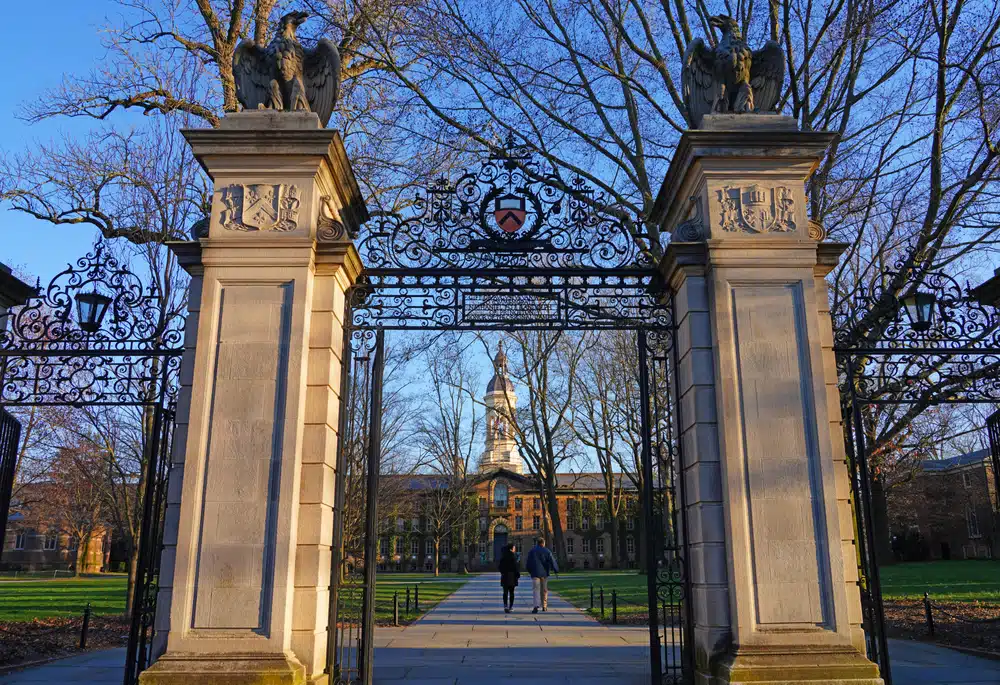Psychology Major at Princeton
The psychology major at Princeton has held an enduring fascination with the human mind and behavior. Delving deeper into this science can lead to a world of profound insights and rewarding professional opportunities. Studying psychology at Princeton University harnesses the full potential of this discipline, packed with unique advantages due to the university’s renowned academic standards, research opportunities, distinguished faculty, and the long-lasting skills it blooms within its students.
Understanding the Basics of a Psychology Major
To truly appreciate the benefits of a psychology major at Princeton, it is essential to understand the basics of the discipline. Psychology, as a field of study, centers on the comprehensive understanding of human behavior, including the biological, social, cognitive, and emotional facets that influence these behaviors.
When studying psychology, students explore the intricate workings of the human mind and behavior. They delve into the complexities of the human brain, examining how it processes information, forms memories, and influences decision-making. They also explore the social dynamics that shape our interactions with others, the developmental processes that shape our personalities, and the emotional experiences that color our lives.
Choosing to major in psychology allows students to delve into this multidimensional discipline, offering them the psychological theories, research methodologies, and applied psychology techniques that help decipher human behavior. It provides them with a solid foundation to understand the complexities of the human mind and behavior, preparing them for a wide range of career paths.
The Core Curriculum of a Psychology Major
The core curriculum in psychology at Princeton has been meticulously designed to provide a comprehensive overview of the entire field. It equips students with a solid theoretical framework, coupled with empirical research skills. Majoring in psychology here involves foundational courses in areas such as cognitive psychology, developmental psychology, social psychology, and neuroscience, among others.
Students in the psychology major at Princeton engage in rigorous coursework that challenges them to think critically and analytically. They learn to analyze research studies, evaluate the validity of psychological theories, and apply their knowledge to real-world scenarios. Through hands-on experiments and research projects, they gain practical experience in conducting psychological research and interpreting data.
Furthermore, the core curriculum emphasizes the integration of different perspectives within psychology. Students explore how biological factors interact with social and environmental influences to shape human behavior. They also examine the role of culture in shaping psychological processes and the impact of individual differences on behavior and mental health.
Alongside the compulsory courses, Princeton psychology majors have the opportunity to design their curriculum by selecting from a plethora of advanced courses depending on their interests and career aspirations. They can choose to focus on specific areas of psychology that align with their passions, whether it be abnormal psychology, cognitive neuroscience, or organizational psychology.
The Specializations within Psychology
Additionally, the psychology major at Princeton offers several specializations. Specializations generally highlight a specific area within the discipline, allowing students to focus on topics like clinical psychology, cognitive neuroscience, social psychology, or behavior and health. Electing to specialize not only deepens a student’s understanding of their chosen topic but also prepares them for competitive graduate programs and varied careers.
Students who choose to specialize in clinical psychology, for example, gain in-depth knowledge of psychological disorders, assessment techniques, and therapeutic interventions. They develop the skills necessary to work with individuals experiencing mental health challenges and contribute to the field of mental health research.
Those who specialize in cognitive neuroscience explore the intricate relationship between the brain and cognitive processes such as perception, attention, memory, and language. They delve into the neural mechanisms underlying these cognitive functions, using advanced imaging techniques and experimental methodologies.
Specializing in social psychology allows students to examine the impact of social interactions, group dynamics, and cultural influences on human behavior. They explore topics such as prejudice, conformity, persuasion, and interpersonal relationships, gaining a deeper understanding of how social factors shape our thoughts, feelings, and actions.
Behavior and health specialization focuses on the intersection between psychology and physical health. Students in this specialization learn about the psychological factors that influence health behaviors, the mind-body connection, and the role of psychology in promoting overall well-being.
Overall, the psychology major at Princeton provides students with a comprehensive education in the field, equipping them with the knowledge, skills, and perspectives needed to understand human behavior from multiple angles. Whether they choose to pursue further education or enter the workforce directly, psychology majors from Princeton are well-prepared to make meaningful contributions to society.
The Unique Advantages of Studying Psychology at Princeton
Princeton University is not just a prestigious institution; it creates an environment that allows psychology majors to thrive and realize their full potential.
When it comes to studying psychology at Princeton, one cannot overlook the incredible advantages that await students. From renowned faculty to exceptional research opportunities, the university offers a comprehensive and enriching experience.
Princeton’s Renowned Faculty in Psychology
The university boasts a faculty of renowned professionals recognized worldwide for their contributions to psychology. These esteemed professors bring a wealth of knowledge and expertise to the classroom, ensuring that students receive a top-notch education.
At Princeton, students are not just taught, they are mentored. This personal guidance provides students with an invaluable opportunity to learn about advanced topics firsthand and encourages intellectual discussions beyond classroom confines. The mentorship approach fosters a sense of collaboration and inspires students to explore the depths of psychology.
Imagine having the chance to engage in thought-provoking conversations with experts in the field, delving into the intricacies of human behavior, cognition, and emotion. This level of interaction with faculty members is a hallmark of the psychology program at Princeton, creating an unparalleled learning environment.
Research Opportunities in Psychology at Princeton
As a Princeton psychology major, students are presented with a variety of research opportunities at both the undergraduate and graduate levels. The university recognizes the importance of hands-on experience in shaping future psychologists.
Princeton prides itself on its cutting-edge facilities and funding opportunities for students to engage in their own research projects. Under the mentoring guidance of professors, students can explore their interests and contribute to the ever-evolving field of psychology. Whether it’s conducting experiments, analyzing data, or participating in fieldwork, students have the chance to immerse themselves in the research process.
These research opportunities not only add phenomenal value to students’ clinic and fieldwork experiences but also significantly increase their prospects for graduate study and employment. The ability to showcase research skills and experience sets Princeton psychology graduates apart, opening doors to a wide range of career paths.
Moreover, the research culture at Princeton fosters collaboration and interdisciplinary exploration. Students have the opportunity to work alongside peers from various disciplines, enriching their understanding of psychology and broadening their perspectives.
Imagine being part of a research team investigating the effects of mindfulness on mental health or exploring the neural mechanisms underlying decision-making. These hands-on experiences not only deepen students’ understanding of psychology but also allow them to make meaningful contributions to the field.
In conclusion, studying psychology at Princeton offers a unique and unparalleled experience. From the guidance of renowned faculty to the abundance of research opportunities, students are equipped with the knowledge, skills, and experiences necessary to thrive in the field of psychology. The journey of exploration and discovery awaits those who choose to embark on this remarkable academic path at Princeton University.
Career Prospects for Psychology Majors from Princeton
A psychology degree from Princeton can open up many exciting career opportunities. From clinical psychology, counseling, and psychiatry to business, human resources, and even artificial intelligence, the potential paths one can take are varied and fascinating.
One of the most popular career paths for psychology majors from Princeton is clinical psychology. With their strong academic and research training, graduates are well-equipped to work in clinical settings, providing therapy and counseling to individuals with mental health issues. They may also choose to specialize in areas such as child psychology, forensic psychology, or health psychology, depending on their interests and passions.
In addition to clinical psychology, many psychology majors from Princeton find success in the field of counseling. They may work in schools, colleges, or private practices, helping individuals navigate through personal challenges and providing guidance for personal growth and development.
Psychiatry is another career option that psychology majors from Princeton may pursue. With additional medical training, they can become licensed psychiatrists, diagnosing and treating mental illnesses using a combination of therapy and medication.
While some psychology majors choose to work directly with individuals, others find fulfilling careers in the business world. The skills acquired during their studies, such as critical thinking, problem-solving, and understanding human behavior, make them valuable assets in human resources departments. They can help organizations recruit and retain talented employees, develop effective training programs, and create a positive work environment.
Moreover, the rise of artificial intelligence has created new opportunities for psychology majors. They can apply their knowledge of human behavior and cognition to develop AI systems that can understand and interact with humans more effectively. This field, known as human-computer interaction, is rapidly growing and offers exciting prospects for psychology graduates.
The Range of Careers for Psychology Graduates
The training that students receive as psychology majors equips them with valuable skills that are in demand across many fields. Graduates of Princeton’s psychology department have gone on to successful careers in academia, healthcare, business, law, the tech industry, and non-profit organizations, to name a few.
For those interested in academia, a psychology degree from Princeton provides a strong foundation for pursuing a career in research and teaching. Graduates can go on to earn advanced degrees and become professors, conducting groundbreaking research and mentoring the next generation of psychologists.
In the healthcare industry, psychology majors can work in hospitals, clinics, or rehabilitation centers, providing support and therapy to patients with mental health conditions. They may also collaborate with medical professionals to develop treatment plans and interventions.
Businesses also value the skills that psychology majors bring to the table. Their understanding of human behavior and motivation can be applied to marketing and consumer research, helping companies better understand their target audience and develop effective advertising campaigns.
In the legal field, psychology majors can contribute to the justice system by working as forensic psychologists. They may assist in criminal investigations, evaluate the mental competency of defendants, or provide expert testimony in court cases.
The tech industry is another area where psychology majors can thrive. With their knowledge of human-computer interaction, they can contribute to the design and development of user-friendly interfaces and virtual reality experiences.
Non-profit organizations also benefit from the skills and perspectives of psychology majors. They can work in areas such as community outreach, social services, or advocacy, making a positive impact on the lives of individuals and communities.
Furthermore, psychology majors from Princeton often pursue graduate studies in psychology or related fields, such as neuroscience or social work, leveraging the strong academic and research training they receive. This advanced education opens up even more opportunities for specialization and career advancement.
The Impact of a Princeton Degree on Job Opportunities
A degree from Princeton University is highly respected and recognized across the globe. Therefore, psychology majors graduating from Princeton are uniquely poised in the job market, given the prestige of the institution, the rigorous academic training they have undergone, and the extensive research opportunities they have availed.
Employers often value the critical thinking, research skills, and strong work ethic that Princeton psychology graduates possess. The reputation of the university can open doors and provide a competitive edge in job applications and interviews.
Furthermore, the network of Princeton alumni can be a valuable resource for psychology majors seeking career opportunities. The alumni community is diverse and well-connected, offering mentorship, job referrals, and networking events that can help psychology graduates kickstart their careers.
Overall, a psychology degree from Princeton University offers a wealth of career prospects across various industries. The combination of prestigious education, specialized training, and a strong foundation in psychology equips graduates with the skills and knowledge needed to make a meaningful impact in their chosen field.
The Skills Gained from a Psychology Major at Princeton
Aside from leading to a compelling range of career possibilities, a psychology major at Princeton provides students with an array of valuable life skills.
Analytical Skills Developed in Psychology
Psychology students at Princeton are trained in rigorous research methods, including statistical analysis and experimental design. These skills not only serve them in advanced research roles but also in various jobs that require analytic thinking.
Interpersonal Skills and Emotional Intelligence
The study of Psychology at Princeton also cultivates attributes such as emotional intelligence, understanding human behavior, and improved communication skills. These competencies enhance interpersonal relationships and are valuable in both personal and professional lives.
Alumni Perspectives on the Benefits of a Psychology Major at Princeton
Princeton’s influential network of alumni offers a unique and vital perspective into the real-life benefits of majoring in psychology at the institution.
Alumni Success Stories in Various Fields
The alumni success stories are wide-ranging. From successful clinicians and research scientists to business leaders, Princeton’s psychology graduates have made significant strides in their respective fields. Their achievements provide robust evidence of the flexibility, versatility, and profound potential of a psychology degree from Princeton.
The Long-term Value of a Psychology Degree from Princeton
Even years after graduation, alumni continue to report the long-term value of their Princeton psychology degree. They convey that their learning experiences from the psychology program continue to serve them in their ongoing careers. Furthermore, they often attribute their successful problem-solving and decision-making abilities to the analytical and interpersonal skills honed during their time at Princeton.
In conclusion, pursuing a psychology major at Princeton University is a captivating journey that offers an all-encompassing understanding of human beings while paving the way for a broad spectrum of career paths. A psychology degree from Princeton is more than just an academic qualification; it’s a seminal life experience that offers lifelong benefits.










































